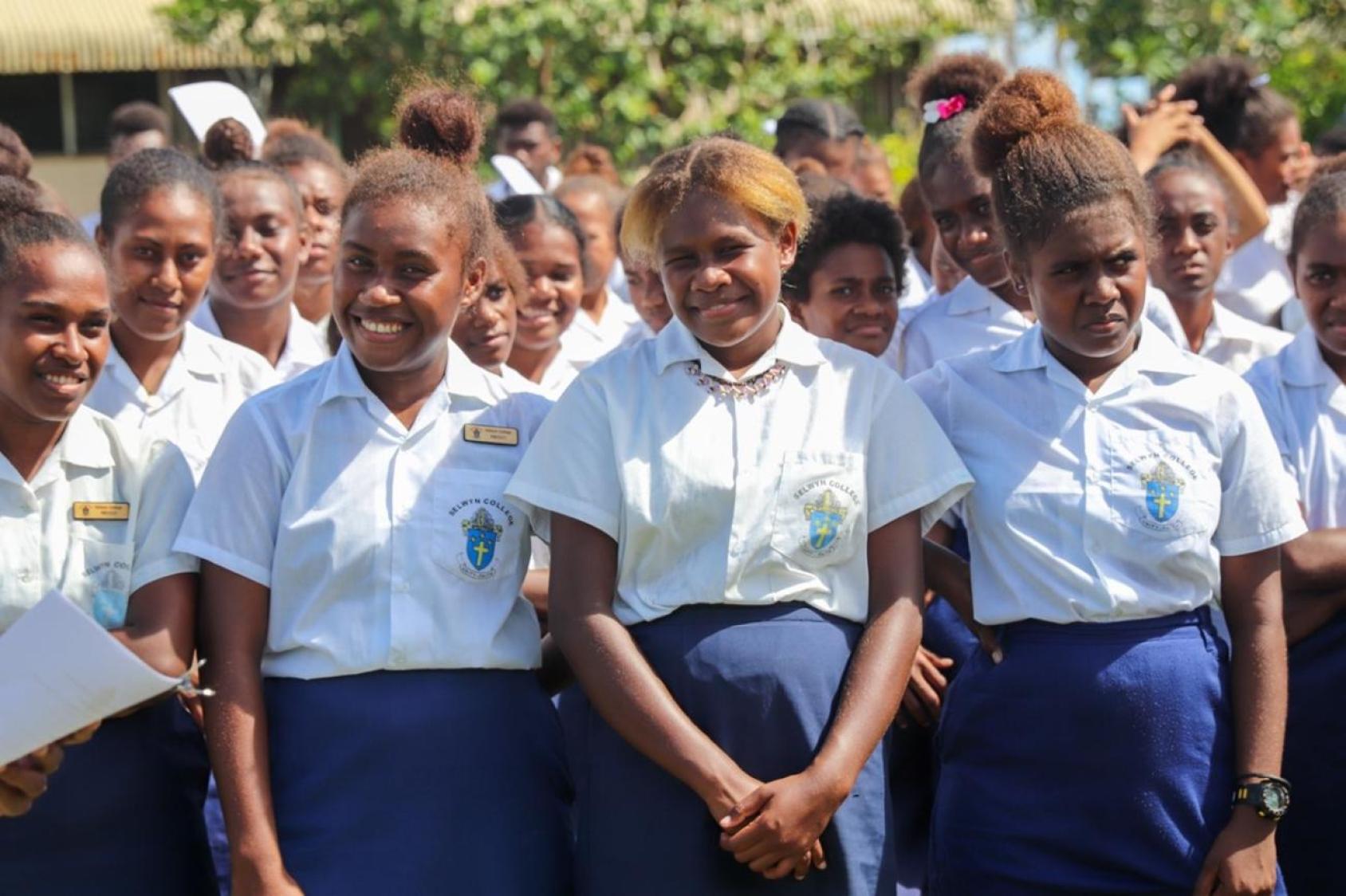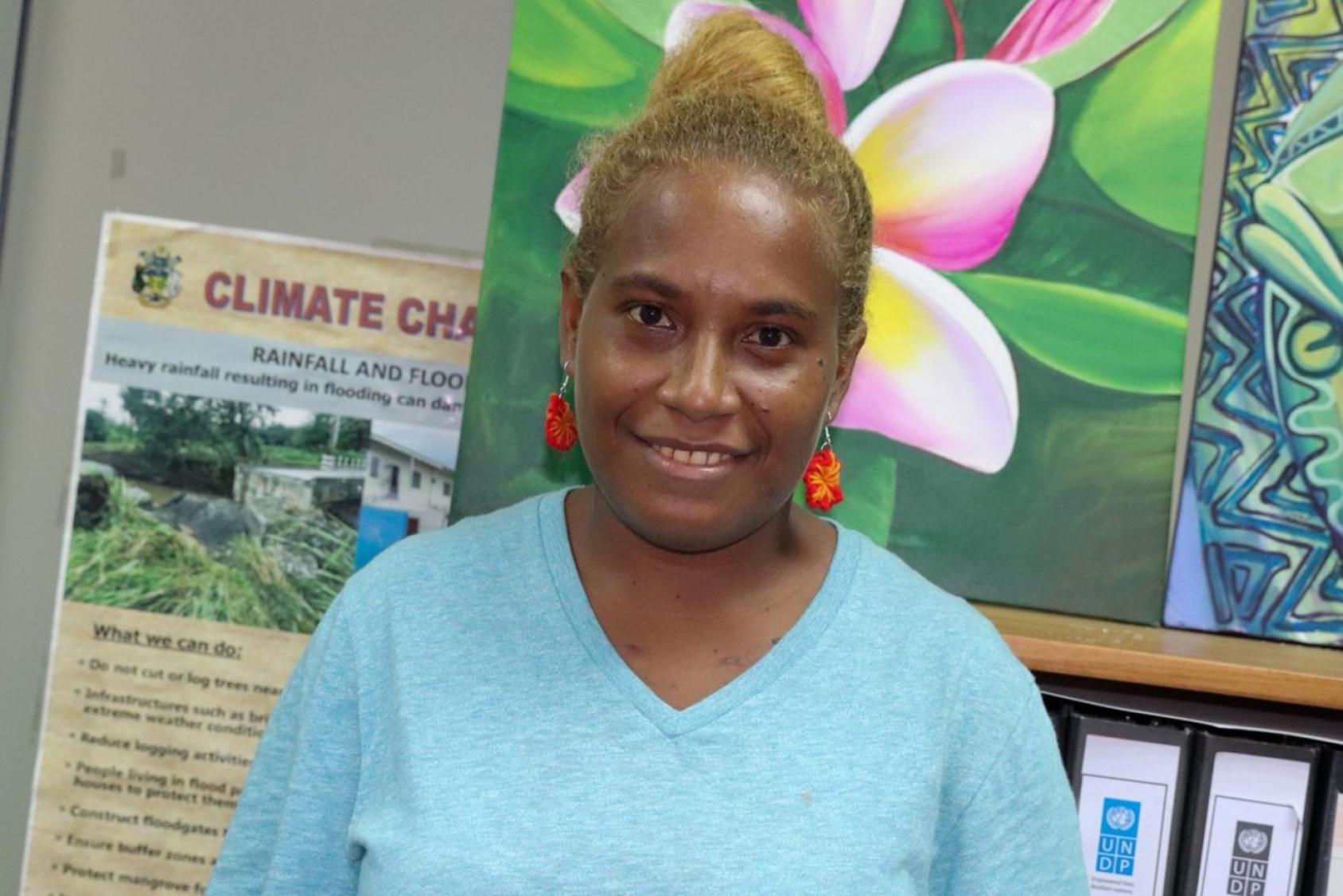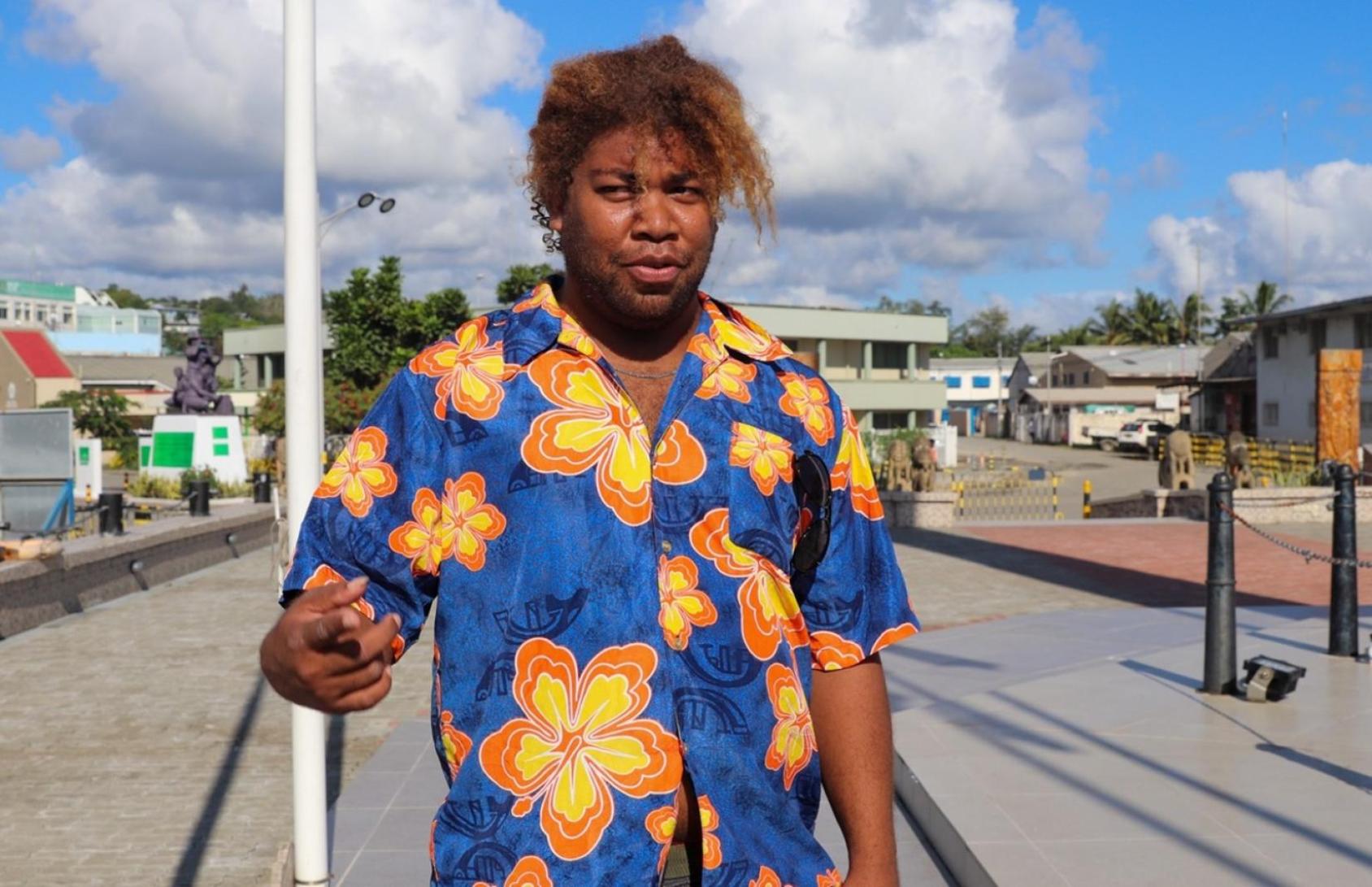Building youth-led social networks in remote areas of Solomon Islands
We highlight this piece in honor of International Youth Day 2022 – and this year's theme: Intergenerational Solidarity: Creating a World for All Ages.
Being misunderstood or misrepresented are feelings that many young people worldwide can relate to. But today, youth are taking on even more responsibility. They participate in global movements and take actions to make the world a better place.
With this responsibility, they also want authority to make decisions for their future. What does this mean for countries in the South Pacific, where half of the population is under 23 – and specifically for Solomon Islands?
In Solomon Islands, where village elders lead decision-making processes, Julian Asu, Bartholomew Wanega and many other young people wonder how they can contribute to these processes.

Jobs, education, and other opportunities are all stretched thin in Solomon Islands, with so many younger people competing for what is available. Some leave school to support their families or meet their own needs. Others, in search of self-realization, endure demotivation and frustration. Yet, young people aren't just waiting to be given a helping hand. Many are active at community, provincial and national decision-making levels.
For Julian and Bartholomew, being young and living in a rural community always meant setting an example for others to impact decisions at provincial and national levels. That is why when they saw that their provinces were among four provinces where youth caucuses were being created, they wanted to become active.
Julian, now Vice-Chair for Purepure Youth Caucus, Weather Coast, will admit that youth activism looks different in Solomon Islands than elsewhere.
Rather than using technology and internet-based social media, limited connectivity means social networking is done on foot. In another province, there was no network coverage, so facilitators and participants passed messages around.

Living in a rural community, like 80 percent of Solomon Islanders, Julian sees the support and recognition from adult leaders as a step in the right direction. In communities like hers, young people have few options with high unemployment.
The four selected provinces were good places to re-start the youth caucuses. Honiara and Weather Coast in Guadalcanal, North Malaita, and Shortlands in Western Province have some of the most vulnerable young people as they come from isolated remote communities and are often left out in decisions and processes that directly impact their lives.
For young people in Solomon Islands to reach their full potential, they need to know how to navigate – socially, economically, and politically. The network developed by the youth caucuses is already bringing opportunities to young people in hard-to-reach places. Just this year, over 500 young people from around Solomon Islands learned about self-sufficiency and how to mobilize their community members in trainings.

Bartholomew Michael Wanega from the Burns Creek Youth Caucus (BCYC) is one of the young leaders who participated in establishing the BCYC. Like in other youth communities, they voted for a leadership team democratically, and he was elected chairperson.
He also took part in the leadership workshop within the revitalization of the Guadalcanal Provincial Youth Council, which brings youth councils’ ideas to the national level. He already sees the benefits of the youth caucuses and youth councils.
Being part of the decision-making process
Bartholomew says the project has helped young people become more self-reliant and stand alongside elders rather than be dependent on them. He believes not only the elected leaders, but all youth have seen the benefits of working with each other. The youth caucus revitalization and youth councils are just the first steps in encouraging their participation into community life. As a participant of a workshop in North Malaita points out:
If you've never been included in, or seen other people take part in the decision-making processes, how do you know it's even an option to you?
While young people in Solomon Islands like Julian and Bartholomew may face more challenges, having a framework for engagement and participation processes will lessen the feelings of misunderstanding and misrepresentation.
Provincial Youth Councils and caucuses have initiated a change: they became a platform where young people could make their voices heard. Not only did young people play a significant role in keeping their communities informed and healthy since the COVID-19 outbreak through awareness-raising, but they also were a substantial part of reconciliation initiatives. As such, young people in North Malaita united with local landholding groups to lead up the land dispute between the two communities.
Brian Williams from the Peacebuilding Support Office in the UN's Department of Political and Peacebuilding Affairs said, “Young people in Solomon Islands are creating their own political space with youth caucuses, provincial youth councils, and above all, the National Youth Congress. Their ideas have a clear pathway to be transformed into policy at the national level through youth caucuses, councils, and Congress.”
By establishing 20 youth caucuses and revitalizing four provincial youth councils, UNDP is helping create a framework that supports social cohesion and peacebuilding – because young people play a crucial role in the nation-building of Solomon Islands.
Enhancing youth participation in peacebuilding through the establishment of youth caucuses and revitalization of provincial youth councils were part of the Empowering Youth as Agents for Peace and Social Cohesion in the Solomon Islands Project implemented by UNDP in Solomon Islands and ILO with the financial support of the UN Peacebuilding Fund.
This story was originally published by the UN in the Pacific. Editorial support provided by the UN Development Coordination Office. To learn more about the UN's work in Solomon Islands, visit: pacific.un.org.













